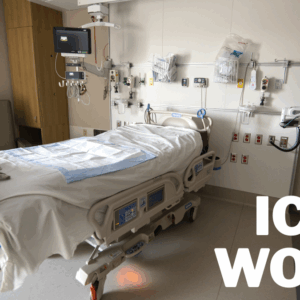In today’s rapidly advancing world, hospital services play a crucial role in maintaining public health. Whether it’s for emergency care, scheduled surgeries, diagnostics, or preventive treatments, hospitals provide a wide spectrum of services aimed at saving lives and improving the quality of life.
Hospitals are not just buildings with doctors and beds — they are highly organized systems that offer medical, surgical, and support services through well-trained professionals and modern technologies.
What Are Hospital Services?
Hospital services refer to all the medical and non-medical functions provided in a hospital setting to diagnose, treat, and support patients. These services range from emergency care and outpatient departments to specialized medical units and rehabilitation centers.
Main Types of Hospital Services
Emergency Services
Hospitals provide 24/7 emergency care for accidents, heart attacks, strokes, and other critical conditions. These departments are equipped with life-saving technologies and trained professionals ready to respond at any hour.
Inpatient Services
These include medical care provided to patients admitted to the hospital. Services may involve surgeries, post-operative care, intensive care, and long-term observation.
Outpatient Services
Patients who do not require admission can access services like consultations, lab tests, minor procedures, and follow-up visits. These services are crucial for ongoing treatment without hospitalization.
Diagnostic Services
Hospitals are equipped with labs and imaging centers offering:
- Blood tests
- X-rays
- MRIs
- CT scans
- ECGs
These services help doctors diagnose conditions accurately and initiate appropriate treatment.
Surgical Services
Hospitals offer general and specialized surgeries in areas like:
- Cardiology
- Orthopedics
- Neurosurgery
- Gastroenterology
- Urology
Maternity and Pediatric Services
Many hospitals have dedicated departments for maternal care, childbirth, and pediatric treatments for newborns and children.
ICU and Critical Care Units
For patients with life-threatening conditions, Intensive Care Units (ICUs) offer round-the-clock monitoring, ventilators, and high-level nursing support.
Rehabilitation and Physiotherapy
These services help patients recover post-surgery or after severe injuries through structured rehabilitation programs.
Pharmacy Services
On-site hospital pharmacies provide prescribed medications, ensuring patients receive the correct drugs immediately after consultation or treatment.
Support Services
These include housekeeping, food services, record-keeping, ambulance services, and security, which ensure the hospital functions smoothly.
Importance of Quality Hospital Services
- Saves Lives: Efficient emergency response and treatment capabilities.
- Improves Recovery Rates: Through professional care and modern treatments.
- Patient Satisfaction: Comfort, cleanliness, and communication enhance healing.
- Public Trust: Quality services lead to greater faith in the healthcare system.
- Accessibility: Hospitals often act as referral centers for smaller clinics and rural health centers.
Hospital Services in Government vs Private Hospitals
| Service Area | Government Hospital | Private Hospital |
|---|---|---|
| Emergency Services | Available but crowded | Fast and well-equipped |
| Surgery | Low-cost, skilled | High-tech, faster |
| Diagnostics | Affordable but slower | Advanced and quick |
| Maternity Care | Basic to specialized | Personalized, premium |
| Waiting Time | Longer | Minimal |
| Room Facilities | General wards to limited private | Variety of deluxe options |
Evolving Trends in Hospital Services
- Telemedicine: Online consultations and remote diagnosis.
- AI Integration: For imaging, diagnostics, and data management.
- Day-Care Surgeries: Minimally invasive surgeries with same-day discharge.
- Electronic Health Records (EHR): For accurate and real-time patient data.
Conclusion
Hospital services are the core of healthcare delivery systems. They offer a structured, multi-disciplinary approach to managing health conditions—from minor illnesses to major surgeries and critical care. With the growing demand for patient-centered care, modern hospitals are increasingly focusing on innovation, quality, and efficiency.
As technology continues to evolve and the population grows, the demand for accessible, affordable, and high-quality hospital services will remain a priority in both public and private sectors.






